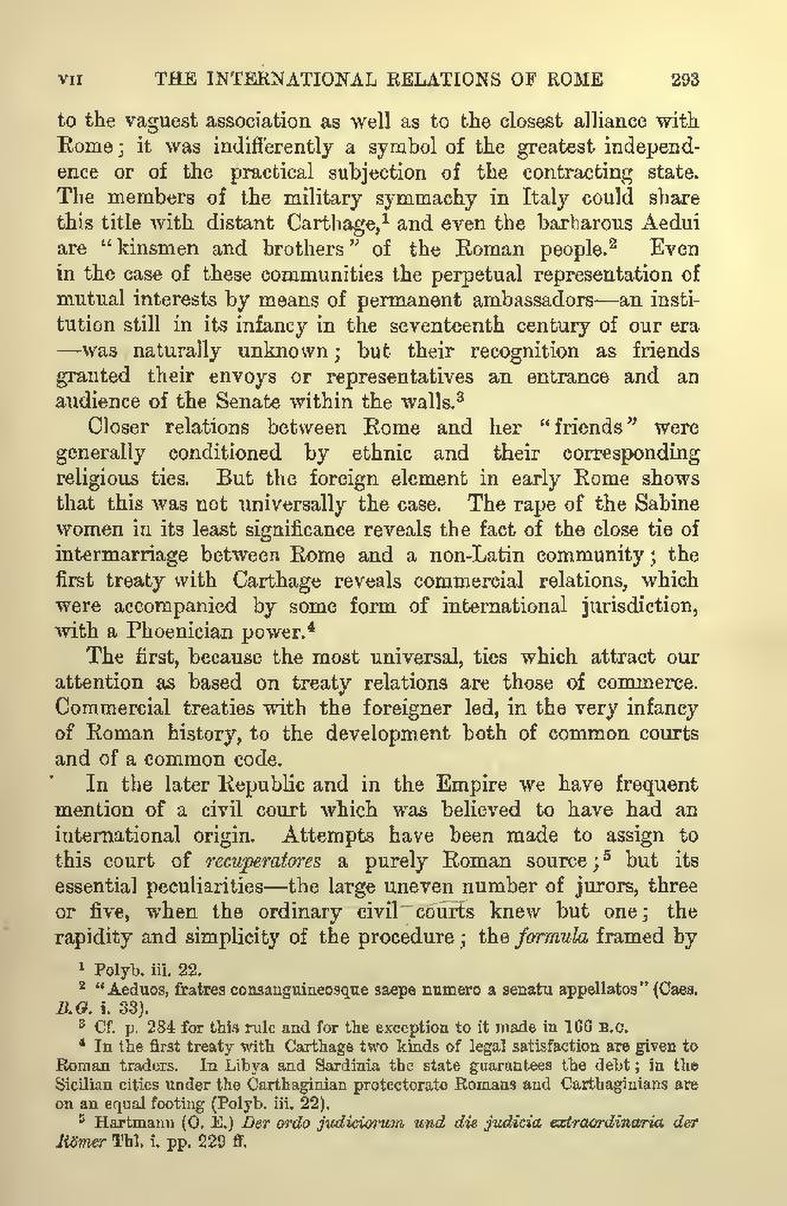to the vaguest association as well as to the closest alliance with Rome; it was indifferently a symbol of the greatest independence or of the practical subjection of the contracting state. The members of the military symmachy in Italy could share this title with distant Carthage,[1] and even the barbarous Aedui are "kinsmen and brothers" of the Roman people.[2] Even in the case of these communities the perpetual representation of mutual interests by means of permanent ambassadors—an institution still in its infancy in the seventeenth century of our era—was naturally unknown; but their recognition as friends granted their envoys or representatives an entrance and an audience of the Senate within the walls.[3]
Closer relations between Rome and her "friends" were generally conditioned by ethnic and their corresponding religious ties. But the foreign element in early Rome shows that this was not universally the case. The rape of the Sabine women in its least significance reveals the fact of the close tie of intermarriage between Rome and a non-Latin community; the first treaty with Carthage reveals commercial relations, which were accompanied by some form of international jurisdiction, with a Phoenician power.[4]
The first, because the most universal, ties which attract our attention as based on treaty relations are those of commerce. Commercial treaties with the foreigner led, in the very infancy of Roman history, to the development both of common courts and of a common code.
In the later Republic and in the Empire we have frequent mention of a civil court which was believed to have had an international origin. Attempts have been made to assign to this court of recuperatores a purely Roman source;[5] but its essential peculiarities—the large uneven number of jurors, three or five, when the ordinary civil courts knew but one; the rapidity and simplicity of the procedure; the formula framed by
- ↑ Polyb. iii. 22.
- ↑ "Aeduos, fratres consanguineosque saepe numero a senatu appellatos" (Caes. B.G. i. 33).
- ↑ Cf. p. 284 for this rule and for the exception to it made in 166 B.C.
- ↑ In the first treaty with Carthage two kinds of legal satisfaction are given to Roman traders. In Libya and Sardinia the state guarantees the debt; in the Sicilian cities under the Carthaginian protectorate Romans and Carthaginians are on an equal footing (Polyb. iii. 22).
- ↑ Hartmann (O. E.) Der ordo judiciorum und die judicia extraordinaria der Römer Thl. i. pp. 229 ff.
